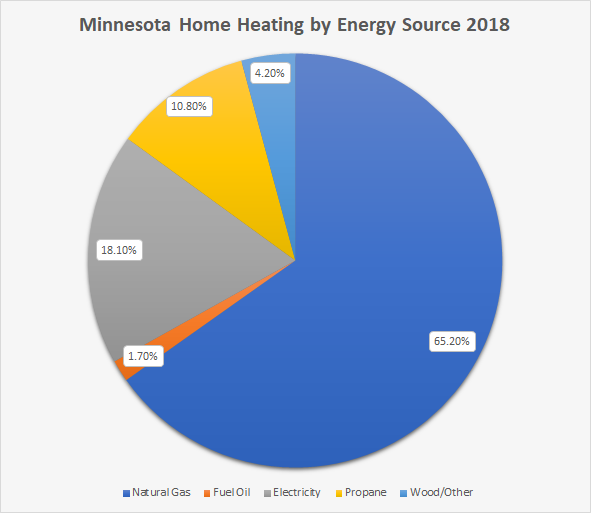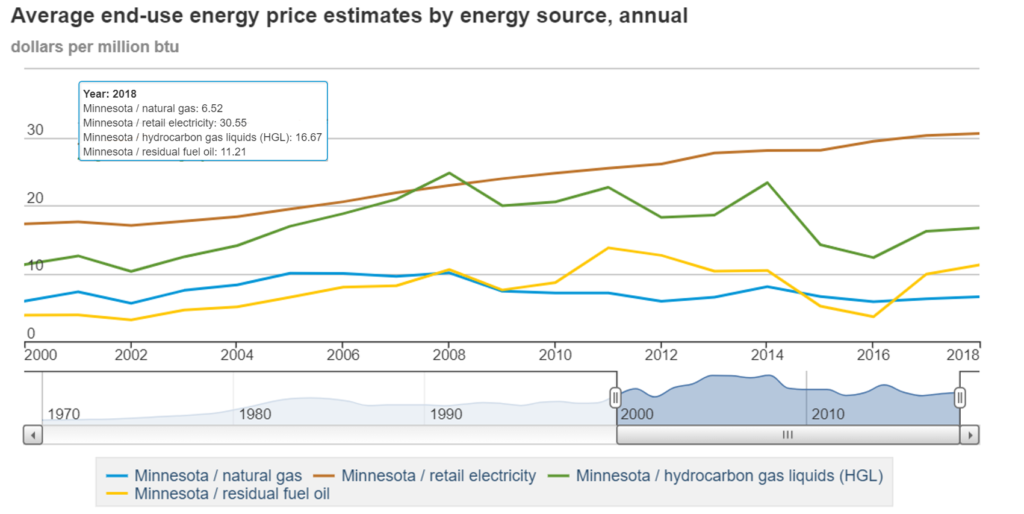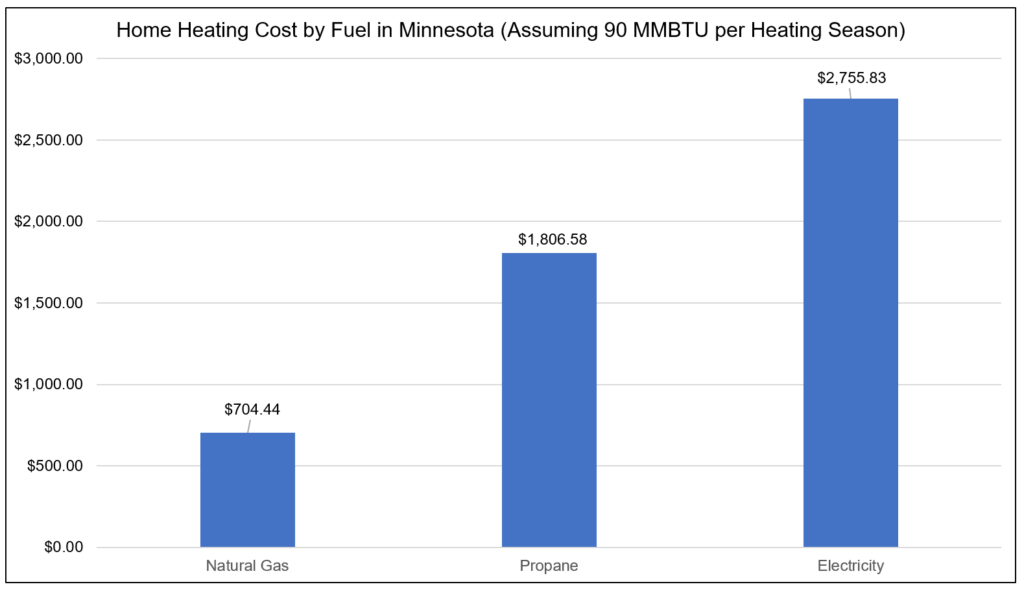ECO Act Could Increase Your Winter Heating Bill
Many Minnesotans are still reeling from the unrest that has enveloped the state for the last week. However, it appears the gears of government continue to churn. This Thursday, the Minnesota State Senate is scheduled to hold a hearing on the controversial ECO Act, which would make changes to the state’s energy efficiency program, called the Conservation Improvement Program, or CIP.
Like any legislation, the ECO Act has positive aspects, like it’s removal of mandatory spending provisions, but is also has a number troubling liberal environmental wish-list action items that should be stripped from the bill. Among these liberal action items are provisions that would force everyday Minnesotans to subsidize electric cars and charging stations, which would overwhelmingly benefit wealthy, urban liberals, and it contains provisions that would subsidize fuel switching for home heating systems, which would increase costs for Minnesota families.
Fuel Switching Will Increase Home Heating Costs
The fuel switching provisions for home heating is problematic because in many cases, it would likely increase the long-term costs for home heating for families participating in the program. This would happen by giving big subsidies incentivizing people to purchase electric heating systems that make them seem more affordable up front, but would actually result in higher annual heating costs, meaning families would pay more in the long run.
Currently, Minnesotans overwhelmingly heat their homes with natural gas. In fact, this fuel heats approximately 65 percent of homes in Minnesota, according to the pie chart below, which was constructed using data from the U.S. Energy Information Administration. In comparison, 18.1 percent of homes use electric heating, 10.8 percent use propane, 4.2 percent use wood, and 1.7 percent use fuel oil.

The fuel switching provisions of the ECO Act would affect families who heat their homes with propane and natural gas the most because liberal environmental groups are pushing for electric heating systems to replace those powered by fossil fuels.
These groups call their efforts “beneficial electrification,” but as you will see below, switching from these natural gas or propane would end up costing them a lot more money in the long run. This is because electricity is the most expensive fuel of any of the commonly used heating fuels in Minnesota, on a per unit of energy basis, and it isn’t even close.
In fact, the at a cost of $30.55 per million British thermal units (MMBTUs), electricity is nearly twice as expensive as propane (shown as hydrocarbon gas liquids in the chart), nearly three times more expensive than fuel oil, and 4.68 times more expensive than natural gas. The chart below was obtained from the Energy Information Administration.

This means that the costs of switching from propane or natural gas to electricity will greatly outweigh the costs. Let’s consider an example to help flesh out the comparative cost of heating a home in Minnesota with these three fuels.
Each winter heating season, your home requires a certain amount of energy to keep the house at the temperature you like. For this example, we will say our hypothetical house needs 90 MMBTU of energy.
If we do the easy math based on the cost figures above, it would cost $586 dollars to heat this home with natural gas for the winter, $1,500 to heat it with propane, and $2,749 with electricity.
However, the easy math isn’t quite right, because most natural gas and propane heaters are 83.5 to 90 percent efficient. This means they are able to use 83.5 to 90 percent of the potential energy in the fuel, with the remainder being lost as waste. In contrast, electric resistance heating systems are generally 97 percent efficient. After accounting for these differences in efficiency, the cost of heating a home for the winter using each fuel sources looks like this:

As you can see, it is still nearly four times more expensive to heat your home with electric resistance heat than natural gas, and it is 1.5 times more expensive to heat your home with electricity than propane.
In the end, a family switching from natural gas to electricity would pay an extra $2,050 dollars to heat their home, and a family switching from propane would pay nearly $950 more per year to stay warm. This is why fuel switching provisions in the ECO Act make zero economic sense.
Conclusions
The types of fuels Minnesota families use to keep safe and warm during the winter should be their decision, not the governments. By subsidizing electric heating systems, the legislature would be effectively putting its thumb on the scale for the inferior technology, at great cost to Minnesota families who are likely already struggling financially due to the Coronavirus shutdown and the unrest that has affected the Twin Cities.
Lawmakers should embrace the good aspects of the ECO Act, like removing mandatory spending requirements for utilities and co-ops, while stripping out provisions that will increase the cost of living for Minnesota families. As such, the fuel switching provisions should be a deal breaker for Minnesota conservatives.